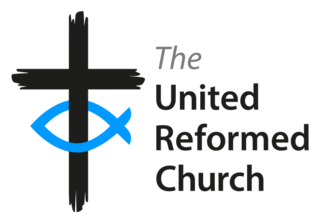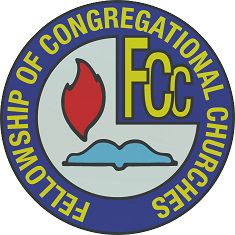
The United Reformed Church (URC) is a Protestant Christian church in the United Kingdom. As of 2022 it had approximately 40,000 members in 1,284 congregations with 334 stipendiary ministers.

Congregational churches are Protestant churches in the Reformed (Calvinist) tradition practicing congregationalist church governance, in which each congregation independently and autonomously runs its own affairs.
Baptists Together, formally the Baptist Union of Great Britain, is a Baptist Christian denomination in England and Wales. It is affiliated with the Baptist World Alliance and Churches Together in England. The headquarters is in Didcot.
The Congregational Union of Scotland was a Protestant church in the Reformed tradition.

A united church, also called a uniting church, is a denomination formed from the merger or other form of church union of two or more different Protestant Christian denominations, a number of which come from separate and distinct denominational orientations or traditions. Multi-denominationalism, or a multi-denominational church or organization, is a congregation or organization that is affiliated with two or more Christian denominations, whether they be part of the same tradition or from separate and distinct traditions.

The Church of South India (CSI) is a united Protestant Church in India. It is the result of union of a number of Protestant denominations in South India that occurred after the independence of India.
The Fellowship of Independent Evangelical Churches (FIEC) is a network of 638 independent evangelical churches mainly in the United Kingdom.

Action of Churches Together in Scotland (ACTS) is a national ecumenical organisation of churches in Scotland, founded in 1990. It is the successor to the former Scottish Council of Churches. ACTS is one of the four national ecumenical bodies in the UK, with equivalent bodies being Churches Together in England, Cytûn in Wales and the Irish Council of Churches, plus Churches Together in Britain and Ireland. The ACTS office was originally located in Dunblane, then in Alloa and finally in Stirling.
Churches Together in Britain and Ireland (CTBI) is an ecumenical organisation. The members include most of the major churches in England, Scotland, Wales and Ireland. CTBI is registered at Companies House with number 05661787. Its office is in Central London. As of 2022 the General Secretary is Nicola Brady, who succeeded Bob Fyffe.

The Evangelical Fellowship of Congregational Churches (EFCC) is an association of around 120 independent local churches in the United Kingdom, each practising congregationalist church governance. The EFCC was founded in 1967 by those evangelical Congregationalists who did not want to lose their independence with the formation of the Congregational Church of England and Wales and the subsequent formation of the United Reformed Church in 1972. The EFCC is an Affinity partner.
Free Church Federation is a voluntary association of British Nonconformist churches for cooperation in religious social work. It was the outcome of a unifying tendency displayed during the latter part of the 19th century.

The Fellowship of Congregational Churches is a conservative Congregational denomination in Australia. It was formed by the forty congregations of the Congregational Union of Australia who chose not to join the Uniting Church in Australia in 1977.
Continuing churches are Christian denominations that form when a church union between different denominations occurs, and members or congregations do not wish to join the new denomination, but instead choose to continue the heritage and identity of their old denomination. The phrase is sometimes used by denominations that separate from a parent body and wish to express their faithfulness to the denomination's heritage.
The United Church in Jamaica and the Cayman Islands is a united church formed on 1 December 1965 as the "United Church of Jamaica and Grand Cayman" by bringing the Protestant denominations "Presbyterian Church in Jamaica" and "Congregational Union of Jamaica" together. The "Disciples of Christ in Jamaica" joined on 13 December 1992, at which time the current name was adopted.

The Union of Welsh Independents is a Reformed congregationalist denomination in Wales.
Margaret Eadie Benn, Viscountess Stansgate was a British theologian, the President of the Congregational Federation, and an advocate of women's rights.
The Congregational Union of England and Wales brought together churches in England and Wales in the Congregational tradition between 1831 and 1966.

Elsie Dorothea Chamberlain was a British Congregational Church minister and radio broadcaster. She was the first woman minister in the RAF and a leader of the Congregational Federation of churches that formed in 1972.









